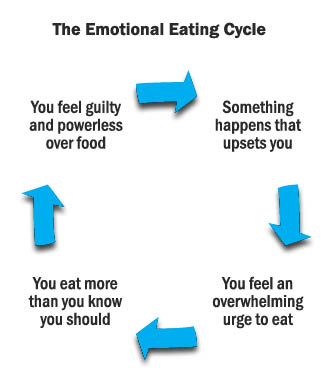Dr. Danesh D. Chinoy is a leading Health and Wellness Coach, Sports Physiotherapist and Psychologist. He is dedicated to helping all to heal holistically and remain fighting fit for life. Providing eye-opening and ground-breaking insights into Wellness, Dr. Chinoy’s two-decades’ rich expertise has won him innumerable awards, nationally and globally. His mission is to empower you to reach your highest levels of wellness/fitness. You can connect with Dr. Chinoy at: daneshchinoy@gmail.com.
 Have you caught yourself opening and closing the refrigerator door or looking through the food shelves but not knowing what you actually want? How about eating ‘just because’ and when you aren’t necessarily hungry? Have you ever wondered if it’s hunger or something else?
Have you caught yourself opening and closing the refrigerator door or looking through the food shelves but not knowing what you actually want? How about eating ‘just because’ and when you aren’t necessarily hungry? Have you ever wondered if it’s hunger or something else?
Managing our weight is the key to good health, but maintaining a healthy weight is easier said than done. It’s vital to focus on the delicate balance between the food we eat and how our body uses that energy. We eat for many reasons; hunger incidentally is the least amongst them. Overeating makes people gain weight or struggle to maintain their weight. For some, eating is not really about eating – it’s often related to our emotions.
One way to start looking at why we eat is to understand the difference between hunger and appetite. Hunger is indicated by physiological signs such as growling of the stomach. This sign tells us that the body needs food. Rather than coming on quickly, it usually has a gradual build-up. When hungry, we are most likely able to stop eating when we are full. Appetite, on the other hand, is psychological – more of a craving, without any signs or feelings of hunger. Psychological / emotional eating more likely accompanies craving specific foods and comes on in moments of happiness, sadness, stress and other emotions.
Eating is a learned behavior. Knowing how much to eat is something that infants are better at, than adults. Until age three, children have a remarkable ability to stop eating when full. Many parents use treats like fast food or ice cream to celebrate or soothe a child’s sad feelings. This lays the groundwork for consuming junk foods during every emotional high or low in life, irrespective of how hungry you actually are!
 The Ventromedial Pre-Frontal Cortex (VPFC) is the part of our brain that activates with anticipation of reward – for eg., food is on the way when we are hungry. Once we are full, VPFC activity is diminished, making us less interested in food. However, once we’ve created a habit (like eating while watching TV or at the movies or when we are sad), VPFC activity is not diminished when we are full. We can thus still feel an anticipation of reward when dessert is on the way, even when we are ‘stuffed at the restaurant after eating the main meal.
The Ventromedial Pre-Frontal Cortex (VPFC) is the part of our brain that activates with anticipation of reward – for eg., food is on the way when we are hungry. Once we are full, VPFC activity is diminished, making us less interested in food. However, once we’ve created a habit (like eating while watching TV or at the movies or when we are sad), VPFC activity is not diminished when we are full. We can thus still feel an anticipation of reward when dessert is on the way, even when we are ‘stuffed at the restaurant after eating the main meal.
Such eating habits are harmful. Through learning, we crave sweets after a meal (yes, this is a learned response, not a natural one). We pick at food in front of us despite being full, just because it’s in front of us. We clean our plates because that’s what we’re taught to do. Hence, we often end up eating more than we want or need.
‘Wanting’ something is not the same as ‘liking’ it; there’s more space in our brain devoted to wanting than to liking. Desire gets us moving. Dopamine neurotransmitter is the fuel of desire. Dopamine rises with anticipation when rewards are just around the corner. Dopamine’s attraction to the immediate, distorts perspective we could have acquired with our more advanced cognitive abilities. So, we soothe our sadness or boredom with a quick bite of junk food at night, instead of listening to what our bodies really need.
But, Here’s The Good News! There’s many ways to stop boredom/psychological/emotional eating. Firstly, we should realize that we aren’t actually hungry and are only eating because out of boredom or emotions. We eat because there’s nothing better to do.
Therefore, one way to prevent this is by getting busy. Trying to stop ‘emotional eating’ is not about willpower – it’s about finding alternatives to eating by keeping busy. It’s all up to us. Bring more awareness to what our body is telling us. Listen to signs of fullness and re-train the brain by changing our habit patterns over time.
Importantly, get rid of all the junk food at home and replace it with healthier alternatives. This is crucial. When tempted to eat out of boredom / emotions, let’s use our ‘skill power’ rather than relying on ‘willpower’ to ensure success! Tracking our meals and snacks makes us aware of what we are eating and our food-patterns.
Allowing ourselves to feel uncomfortable emotions can be scary; we may fear opening the Pandora’s box. But the truth is, when we don’t obsess over or suppress our emotions, even the most painful and difficult feelings subside and lose their power to control our behaviour. For this, we need to become mindful and learn how to stay connected with our emotional experiences. This enables us to manage stress and repair emotional problems that often trigger emotional eating.
When we eat to feed our feelings, we tend to do so quickly, mindlessly consuming food on autopilot. We eat so fast that we miss out on the different tastes and textures of our food – as well as our body’s cues that we’re full and no longer hungry. By slowing down and savoring every bite, we’ll not only enjoy our food more, but also be less likely to over-eat.
Eating while we’re also doing other things – such as watching TV, reading, or playing with our phone – can prevent us from fully enjoying our food. Since our mind is elsewhere, we continue eating even though we’re no longer hungry. Eating mindfully helps focus on our food and prevents overeating.
When we’re physically strong, relaxed, and well rested, we’re better able to handle the curveballs that life inevitably throws our way. But when we’re already exhausted and overwhelmed, any little hiccup has the potential to send us off the rails and straight toward the refrigerator. Exercise, sleep, and other healthy lifestyle habits will help us get through without emotional eating.
So now we know why people ask us to eat to our hearts content. Do write in to share your thoughts (or even, your emotions!) God bless!
- Anatomy, Physiology And Physiotherapy: The Wacky World Inside You - 20 April2024
- Beyond Numbers: Being Kind To Your Body Post-40 - 16 March2024
- Marvels Of Lymphatic Drainage Demystified - 25 November2023
